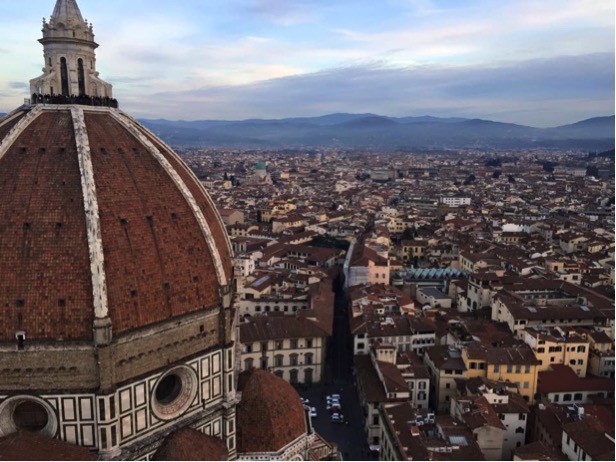Over the weeks of living and studying in Italy a noticeable change has been apparent. The more time an individual spends out in the community the more they integrate. As a tourist, it is simple to be pointed out of a crowd of locals. The way you dress, the way you walk, and the copious amounts of selfies and picture taking. Tourists also hold themselves in an evident uncomfortable manner. They’re not here for long so they barely put effort to understand and participate in the culture. With this idea of being in a new culture for a short period of time some degree of disrespect is expected. It may be out of lack knowledge in the new culture or clear ignorance. Nevertheless, it is easy to spot tourists at this point in our trip. As Americans, we can see the ethnically different tourists and even fellow Americans experiencing this new atmosphere. Aspects of social interaction develop to become more like the culture in which the individual is embedded. When walking around town and frequenting some of your favorite spots, your face becomes familiar. At the same time the individual making this transition from tourist to resident is noticing faces and mannerisms by the locals. To make the change, connection is key. Maybe you reach out and introduce yourself or do something as simple as smile and greet a person. The key is the attention shown and the attention received between the local and new resident. This will leave an impression to be remembered. When being new to the city without being a fluent Italian speaker, at first it is extremely difficult to find everyday items and the stores in which they sell them. As more time is spent exploring and searching, you begin to understand what store signs mean and what products you can find there. This is just one small example of how being immersed in the Italian culture for an extended period time forces you to begin understanding the culture on a deeper level, although you may not even notice you are embracing the culture to any degree.

Another interesting aspect of integration is developing emotional connection between the culture and the individual. Upon leaving for a weekend trip, at some point the feeling of missing home might arise. Meaning you miss the culture that you have recently been learning. Same when you arrive back into the Italian apartment and experience the feeling of home sweet home. For example, I recently traveled to Switzerland for the weekend. Even though my time was consumed with activities and I was surrounded by friends, I still felt myself missing Florence even though I had been gone for less than 48 hours. I thought it was strange that my attachment to Florence had grown so strong so quickly, but it had. By the time Sunday arrived, I could not wait to be back in my apartment. Florence has become my home.
When it comes down to it, making the transition from tourist to resident patience needs to be practiced. You may not understand everything when it is first exposed to you. Don’t let this hold you back from trying or experiencing something again. The more you try and having a willingness to learn, the better of an understanding will you will grasp. With this mindset becoming a member of a new culture can be obtained.
 Written by (in alphabetical order): Matt Bitchell (ConnColl), Kate Goodman (Penn State), and Lindsay Hawes (UCONN), Marc Sands (Penn State).
Written by (in alphabetical order): Matt Bitchell (ConnColl), Kate Goodman (Penn State), and Lindsay Hawes (UCONN), Marc Sands (Penn State).
